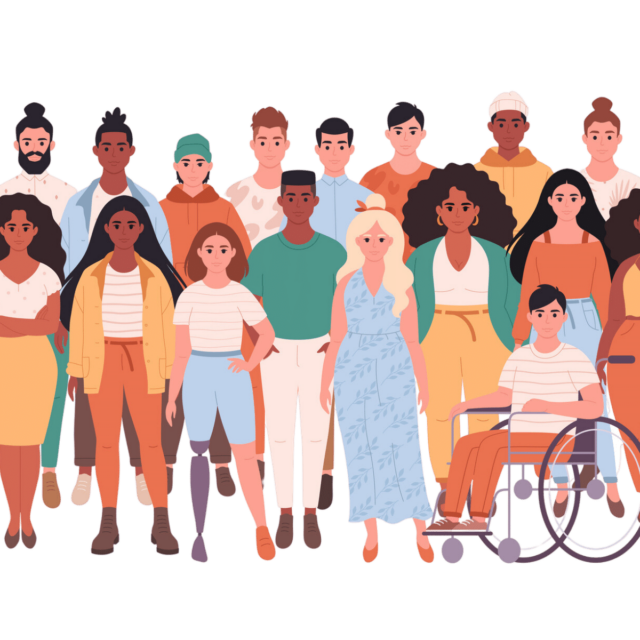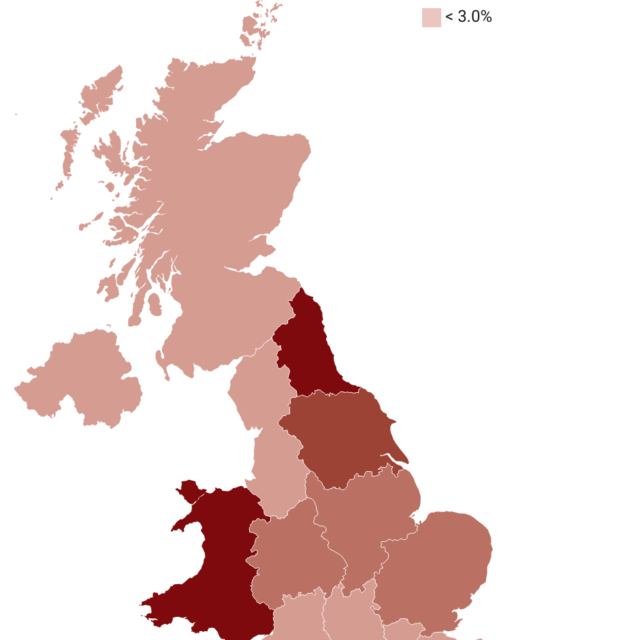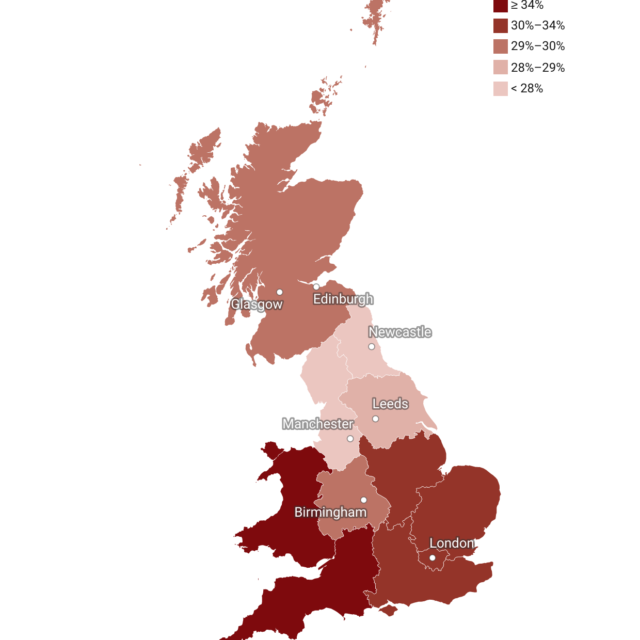Economics after Slavery and George Floyd
Slavery was and is a pathology of economics. Our long-standing failure to reflect that has caused us to mishandle our foundational concept of “an economic agent”. Correcting that will not only secure the integrity of our discipline at its core but is also essential to for us to grasp exactly what is at stake in the earthquake now unfolding in the United States—and its global implications—after the murder of George Floyd, and to ponder what is to be done about it.

Slavery was and is a pathology of economics. Our long-standing failure to reflect that has caused us to mishandle our foundational concept of “an economic agent”. Correcting that will not only secure the integrity of our discipline at its core but is also essential to for us to grasp exactly what is at stake in the earthquake now unfolding in the United States—and its global implications—after the murder of George Floyd, and to ponder what is to be done about it.
My adopted country, the United States, is again in turmoil over race. Many easy assumptions have been called into question. The outlook is unclear.
But, thus far, economics has mostly looked on, untouched. That must change because the turmoil also points to core shortcomings in our discipline of immediate policy relevance.
To see how, in work I began a year ago, “On Economic Agency”, I’ve taken a second look at how best-practice undergraduate economics typically treats slavery.
For the most part, it doesn’t. Extensive work on the subject by specialists finds no place in the modern core curriculum. Analytically, that is largely because slavery is regarded as arising for reasons which have nothing to do with economics; it is seen as a social or historical phenomenon. Our standard take therefore is that the practice is “utterly unthinkable now; what more is there to say? No need for a guilt trip.”
But people-traders and people-owners were in it for profit. And profit-seeking is very much our core business. At the very least, if we want to convey a fully-rounded assessment of profit-seeking to students, there is something of a professional lapse here in our ordinary treatment of slavery.
That lapse is all the more striking when one considers the duration and scale of the phenomenon.
As detailed in my paper, the simple numbers—some 12 million people were transported by all “Enlightenment” nations to the New World over 3 centuries—do not really yield a visceral intuitive sense of scale.
Instead, reset the numeraire. Broadly, an African man in his prime was sold at auction in the American Colonies and the United States for prices equivalent to what was paid for a median white middle class house there at the time of his sale. Those were the standard terms of trade.
Thus, with such a house as numeraire, some 12 million “houses” were imported into the New World by the Atlantic Trade in People.
That is almost half the number of houses in the UK today and likely considerably more than the number of houses in the UK at the time—when it was the emergent and actual global hegemon and a key global orchestrator and beneficiary of the Atlantic Trade in People.
And that daunting number excludes the vastly greater number of “houses” subsequently born into lives in slavery in the New World. To get a sense of that scale, in total, of the 12 million “houses” imported into the New World over 3 centuries, only some 400,000 were imported into the American Colonies and the United States prior to 1860. But in 1860 at outbreak of Civil War, 4 million “houses” (people) were enslaved there. Now ponder what all those parameters imply for the number of “houses” elsewhere in the New World.
Slavery was a gigantic business relative to the size of the global economy.
And if buyers were consistently paying such sums at auction in such numbers over centuries, it was profitable for them to do so. Reflecting relative market power, those enormous sums were divided between people-traders, the support industries behind them, and in the case of people born into slavery, the people-owners.
So, slavery wasn’t “something bad that happened for social or historical reasons which had economic consequences”; it was “something bad (and huge) that happened for economic reasons.”
So, it is quite something for us to say virtually nothing to regular economics students about such an enormous and long-enduring profit-seeking activity.
And the riposte that “well, it isn’t happening now” is not only incorrect—slavery is not a crime in about half the countries of the world—but also overlooks that the lapse on our part is not just a matter of incidence, scale, and duration, but is conceptual too.
Our profession’s foundational concept is “the economic agent”. We implicitly and virtually without thinking assume that agency is always and everywhere a given and indivisible.
Indeed, that notion is so deeply entrenched in us that virtually every paper we write—from orthodox to heterodox—refers dispassionately to “economic agents” as if there is and never was anything else anywhere. And given that, the core (only?) problem we address is decision-making by economic agents subject to budget constraints.
In as far as it goes, that way of framing questions has proved profoundly fruitful.
But it evidently does not go nearly far enough. My concern here is not the old chestnut that we assume “rationality”. Instead, the core business model of slavery was removal of the economic agency of Africans by people traders for profit. The many, many millions of slaves, by definition, were (are) non-economic agents.
Of course, they decided some things, such as whether to tilt their heads to the left or right as they slept, and among themselves, which slurs to cast on their owners. They may have made those decisions “rationally” or not. But unlike the rest of us, they could not choose their work, their spouses, and nor could they secure the economic agency of their children. They had core decisions made for them, as a direct result of profit-seeking by others.
Thus, the dimensions and elements of the matrix of relative prices enslaved people faced as consumers and producers was very different from the matrix faced by the rest of us.
And this conceptual state of affairs did not disappear with Emancipation—here we come to Mr. Floyd. Ask African-Americans if the dimensions and elements of the matrix of relative prices they faced came into alignment with those faced by white people at the stroke of Lincoln’s pen upon Emancipation in 1863, and you will have your answer. Economic Agency is neither “a given” nor binary: it is of highly and deliberately variable degree.
Accordingly, economic agency is not only compromised on the dimension of skin pigmentation. The same phenomenon is also reflected—amongst many other manifestations—in the highly varied economic status of women over time and across countries.
If that matter seems trivial relative to the depravity of slavery, consider the implications of underpayment of women worldwide relative to their correctly measured marginal product by an average fraction, say, of just 1/8th. Over a lifetime, that is 1/8th of a house. Amortize that over the billions of women world-wide to get a sense of the scale of returns to profit-seekers from that compromised state of economic agency by gender.
Contrary to standard classical analysis, such underpayment is not simply competed away, because the affected are held (by definition against their choice) in agency half-way houses, with the specific and extreme case of slavery illustrating this general point.
So, discrimination, by means of compromising economic agency, whether as slavery or otherwise, is not “something bad that happens for social reasons, with economic consequences”; it is “something bad that happens for economic reasons.”
Thus, rather than being innocent and convenient, the simplifying assumption of exogeneity that we have long made —that slavery was exogenous to economics—was the means of completely missing the point: that there may be enormous private returns to compromising the economic agency of others, and that doing so gives rise to the ultimate and most fundamental of all externalities. The positive and normative implications of this observation are profound.
And as the status of African-Americans and women illustrates, these matters pertain with a vengeance right up to the present day, even in the absence of slavery, as is all-too-evident in the disproportionate racial patterns in the incidence of and fatalities from COVID-19.
Thus, these conceptual matters of Economic Agency warrant a stand-alone discussion in every Microeconomic Theory 101-and-up text; they now appear in none, and never have. But their import goes far beyond merely what we do and do not teach economics undergraduates as core.
Indeed, these matters of agency lie at the core of the earthquake now unfolding in the United States, because they have constituted its fundamental fault line—its original sin—since its inception in the 1600s. And if for no other reason, these matters are therefore central to the global economy because they are central to the United States, including via their role in determining the current occupant of the White House. It really is quite something for standard economics, via our assumption of exogeneity, to have taken so little interest in these conceptual matters.
Mr. Floyd’s murder and the subsequent demonstrations manifest dramatically what exactly is meant by saying—dispassionately—that the dimensions and elements of matrices of relative prices still differ by race. And given that such differentiation certainly results in—and, just as slavery was, is also motivated by—equilibrium discriminatory remuneration yielding high returns to profit seekers, this is not merely a matter of criminal justice or prejudice or racialized policing: it is, at root, also a matter of economics.
But not economics of the kind that assumes that “economic agency is always and everywhere a given and indivisible.” We have work to do on that in order to help.
My paper calls for—and makes a start with—that work. Among issues considered are exactly how those who set about making profits by compromising the agency of others actually pull it off, how they interact with firms, how to shield economic agency from their efforts, and the obligations of the State in securing Universal Economic Agency— including its obligations towards victims after it has failed to secure their agency, the matter, quantification, and urgency of Reparations.
I do not pretend that my piece is the last word: instead, it is a clarion call-to-arms to the profession. I issue that call because I am immodest enough—and remain fully confident in my profession, once we have addressed our gross conceptual lapse on agency—to believe that economics has a central role to play in the diagnosis and prescription for the United States in its turmoil now, very much including the issue of Reparations for Slavery.
But given this particular American context, we do not have much time to sort ourselves out. COVID-19 is not the only matter that should command our attention at this time.
You may find my paper, “On Economic Agency”, here.
I am most grateful to Jagjit Chadha and Adrian Pabst for comments on this blog, and to participants at a NIESR seminar in August 2019 on the underlying material. The usual disclaimer applies.

















